Top 10 Landlord Mistakes that can ‘break’ the investor’s success – as seen from the perspective of a Property Manager.
After being in the property management business for over ten years, I have identified the top ten mistakes that property owners can make which directly affects the success of their real estate investment. It’s a different list from the one we usually see; the list that includes things like landlords not screening their tenants, having a poor lease or no lease at all, lack of policies for late rent payment or letting the tenants run the show. This top ten list was derived from observing the struggles of a few rental property owners; those owners who were not overly successful at owing rental real estate, even in a booming market with a near 0% vacancy rate.
- Buying the ‘wrong’ property.
All properties do have value, but not all properties are the ‘right’ property for every investor. Choosing the right property as an investor is as important as choosing a home to live in. There is a lot to choose from; lower-income single-family homes, student housing, condos, rehabs, multi-family etc. but what it really comes down to is preference. An investor should choose the type of investment portfolio based on what fits their comfort level. Things like repairs and maintenance or the types of tenants the property attracts determines how long an investor can stay in the business depending on their comfort level with these types of factors. When an owner buys the wrong property, they stress and struggle through it and get out as soon as they can.
2. The ‘worst’ type of landlord – the homeowner who rents out their home while they travel for a year or two.
I say ‘the worst’ because they are emotionally attached to their home; their gardens, their pristine hard wood floors, their brand new, top of the line stainless steel appliances and everything else in the home. In general, they tend not to understand the Residential Tenancy Act and because of their inexperience, they don’t seem to understand that the Tenancies Board is usually on the side of the tenant. They return to their property after some time and find they are disappointed with the results, but they forget that the tenant paid their mortgage and utilites, their home went up in value and their occupied home was covered by insurance while they were away.
3. Not having enough properties.
Having one or two properties is more ‘risky’ than having, let’s say, 7 or more. I don’t know exactly what the magic number is but I do know that owners that own 7 or more properties act a lot differently than those that own 1 or 2 when something needs to be replaced or fixed or there is a vacancy. Rental properties need leverage from the portfolio pool. The small positive cash flow from several properties should be pooled in one account and be accessible when needed.
4. Not employing a property management service.
I’m going to use an acquaintance of mine as an example. They have exactly 7 rental properties which they manage on their own to save about $700 per month, which I understand. It seems like a good idea, but they both have full time jobs, 3 busy kids, 2 dogs and a cat. Besides going a little crazy at times, what I worry about is the details that may get overlooked like forgetting about bylaw requirements like checking smoke detectors every 6 months. The unexpected hassles of property management can be hard on the relationship unless both spouses are equally as engaged and on board. Self-management is probably the thing that is limiting them from wanting to go bigger.
5. Negotiating ‘deals’ with tenants to renovate the property.
The situation where a tenant gets a discount on rent in return for some type of maintenance or renovation work is risky and usually fuel for a future legal battle. When an owner and a tenant make this type of negotiation, usually the deal is not written down, and inevitably leads to some miscommunication. It is never a good idea to cut a ‘renovation for rent rebate’ deal. Our advice; always collect the rent in full from the tenant and hire an experienced contractor, friend or family member to do the job – never the tenant.
6. Having the tenants share the utility bills in small multi-family buildings like duplexes or tri-plexes.
If the utilities are not individually metered per suite, there is no better way to start an in-house battle between tenants than splitting up the utility bills between them. We have seen messy situations where the top floor was responsible for paying the heat and the basement pays the water and the power. As a general rule, this does not work! If there is only one meter in the building, the owner must keep that utility bill in his/her name and set the rental rate to include that utility.
7. Evicting tenants under false pretenses.
Listing a rental house for sale is tricky. Most Residential Tenancy Acts across Canada prohibit the owner from evicting tenants for the purpose of selling, but they do allow them to evict them for major renovations or occupying the unit themselves. Quite often, when tenants are evicted, they continue to watch what happens to the property after they move out, and if they see the house listed on MLS soon after, they can seek compensation. Tenants are getting smarter these days and know their rights, so it’s just too risky to evict tenants under misleading intentions.
8. The owner does not visit their property at least once a year to assess future major renovations.
Property management is a service that provides rental income and preserves the cosmetic condition of the property. Property management companies hire staff that perform all the on-site duties, like the showings and the move-ins. These staff members are not certified home inspectors and they do not look at the property with the same concern as an owner should. Every property owner should book an inspection with all of their properties every year, and be aware of aging items such as the roof, the foundation, carpets, kitchens and bathrooms. Property managers will report broken items to the owner if they become an issue, but unless the property is screaming for immediate attention, it is assumed that everything is okay. And since most owners don’t love to spend money on their properties if they don’t have to, they think no news is good news, but that is not always the case.
9. Owners that do not keep up-to-date with the true rental house market in the area.
Tenants are getting smarter and fussier these days, probably due to all the reality TV shows where someone is renovating some ‘space’. In our office, we call it the ‘HGTV Effect’ and it’s a real thing. Tenants are demanding more for their money and they have more to choose from. This effect is a factor that is independent from the CMHC vacancy rate, which only studies multi-family suites and has nothing to do with the vacancy rate of private rental homes. These days it’s not uncommon to see new home construction popping up as rental houses. This new trend of ‘newly renovated’ rental houses means the owner has to keep their ear to the ground as to what is actually happening in the local rental house market and stay current.
10. Being a bad client.
Property management can absolutely ‘make’ or ‘break’ an investor’s dream to become a long-term investor. If an owner has the skills and the time to do the property management on their own, great! But many investors don’t have this kind of time or they understand the value of their own time.
A good property manager makes it look seamless and effortless, but the truth is; property management is intense. It’s a day full of a million details. It is very labour-intensive, and can be confrontational, frustrating and stressful. Building wealth through real estate is hard work. The returns are high but so is the commitment and the amount of work required. Somebody has to put in the sweat equity whether that is the owner himself or a property manager.
However, property managers are people and they respond to their clients like normal people. There are owners that are very pleasant and easy to deal with and then there are those are demanding, mistrusting and don’t understand the difficulty of the job. Just like any member on an investor’s power team, a property manager will work better for the client when they know the client appreciates their hard work and expertise. For best results out of of anyone on your power team, being a good client/owner is important.
by Kathy Berner






